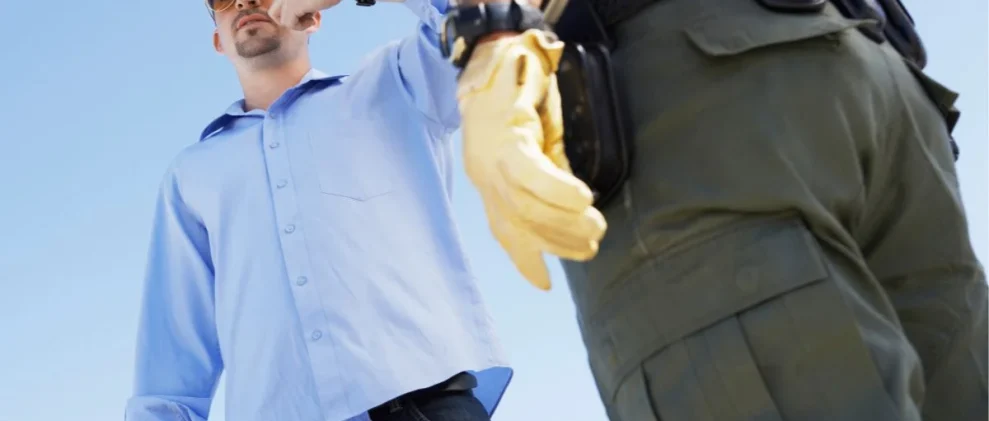Texas DWI Laws and Penalties

Driving while intoxicated (DWI) is illegal, and it is vital for every driver in the state to understand Texas DWI laws and penalties if they are charged with this offense. Every case is unique, but there are several important legal principles that apply in all DWI cases. An experienced DWI defense attorney will be an invaluable asset for anyone facing this situation and can provide valuable insight into the unique details of their case.
Defining DWI
State law defines DWI as operating a motor vehicle while intoxicated by drugs or alcohol. Technically, a driver breaks the law as soon as they are intoxicated to the point that their driving ability is impaired. The strict definition of driving while intoxicated by alcohol means having a blood-alcohol concentration (BAC) of .08% or higher. It is also possible to commit a DWI with drugs with any detectable amount of drugs in the driver’s system.
There is a lower BAC limit for commercial drivers, and there is a Zero Tolerance policy for drivers under the age of 21, meaning any detectable BAC level results in a DWI charge. Police typically begin DWI cases by conducting traffic stops when they suspect drivers of being under the influence. A police officer must establish probable cause to conduct a lawful arrest for DWI.
Penalties for DWI
Like most other states, Texas assigns penalties for DWI based on the severity of the offense and whether the defendant has a history of prior DWI convictions. The standard penalties for DWI can include a fine, jail time, and driver’s license suspension. A sentencing judge may also require a defendant to complete specified hours of community service, enroll in a DWI education course, or complete a substance abuse treatment program. Probation may also be assigned.
An experienced DWI defense attorney can help their client argue for leniency in sentencing, but this is never a guarantee. Some judges prefer to stick to the prescribed sentences outlined in state law, while others take more individualized approaches to these cases, assigning penalties they believe to be most suitable for the circumstances in question and the specific defendant they are sentencing.
Penalties for DWI can increase significantly based on the specific details of the case. For example, causing an accident while under the influence that results in great bodily harm or death could automatically qualify a defendant for felony prosecution. They could also face a civil claim for damages from the victim of their actions alongside the penalties assigned to them in criminal court. Civil liability can dramatically increase the overall financial impact of a DWI accident.
The record of a DWI will interfere with the defendant’s life in many ways. They could face limited job opportunities due to their criminal record, increased auto insurance premiums, and even professional consequences such as the loss of a professional license they previously held, forcing them to find a new career. They could also face repercussions in family court, such as loss of child custody rights and increased child support obligations.
FAQs
Will I Go to Jail for a First DWI?
You might go to jail for a first DWI in the state based on the specific details of your case. The standard penalty for a first DWI in the state includes up to 180 days in jail, three of which are usually mandatory. However, some sentencing judges are willing to suspend jail time for first offenders as long as there are minimal aggravating factors in the case. A defense attorney can potentially help their client mitigate the penalties that could be assigned to them in sentencing.
How Long Do You Lose Your Driver’s License for in Your First DWI?
For a first DWI conviction in the state, you could lose your driver’s license for up to one year. However, this could be reduced to a 90-day suspension, and then the judge will require the defendant to have an ignition interlock device installed on their vehicle for a specific time period, and they will also likely be required to complete community service. Some defendants may qualify for restricted licenses that will allow them to drive to and from work during suspension.
What Are Aggravating Factors in a DWI Case?
Aggravating factors in a DWI case are any details of the case that are likely to result in harsher sentencing for the defendant. Causing an accident while intoxicated, resisting arrest, having an excessively high intoxication rating, or having a record of past DWI convictions are all commonly cited aggravating factors that are likely to lead to harsher penalties if the defendant is convicted.
What Happens if a Driver Causes a DWI Accident?
If a driver causes a DWI accident in the state, they not only face criminal prosecution for breaking the law but also civil liability for the damages they inflicted. The injured driver is likely to file an auto insurance claim against the intoxicated driver to seek compensation for their losses. If insurance won’t fully cover their damages, they will likely file a personal injury claim to recover the rest.
Why Should I Hire a Defense Attorney in a DWI Case?
You should hire a defense attorney in a DWI case because you will have the greatest chance of avoiding conviction if you have an experienced defense attorney representing you. An experienced defense attorney with a proven record of successful cases can help you understand your situation more clearly and more effectively leverage the defenses available to you. They may help you avoid conviction or, at the very least, minimize the penalties assigned to you.
The attorneys at Hochglaube & DeBorde, P.C. have years of experience in criminal defense and can provide the comprehensive legal support you will need for your impending DWI case. It’s natural to have lots of important questions in the aftermath of an arrest, and you need an attorney you can trust to guide you through this situation. Contact us today and schedule your consultation with our team to learn how we can help with your defense.



